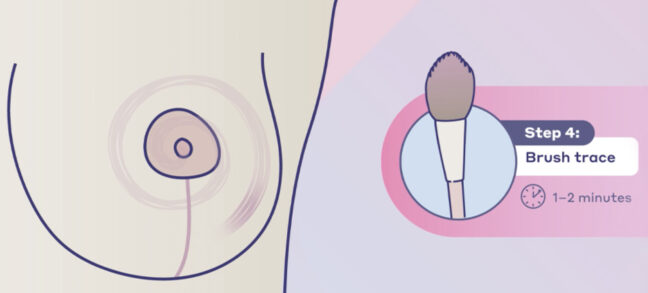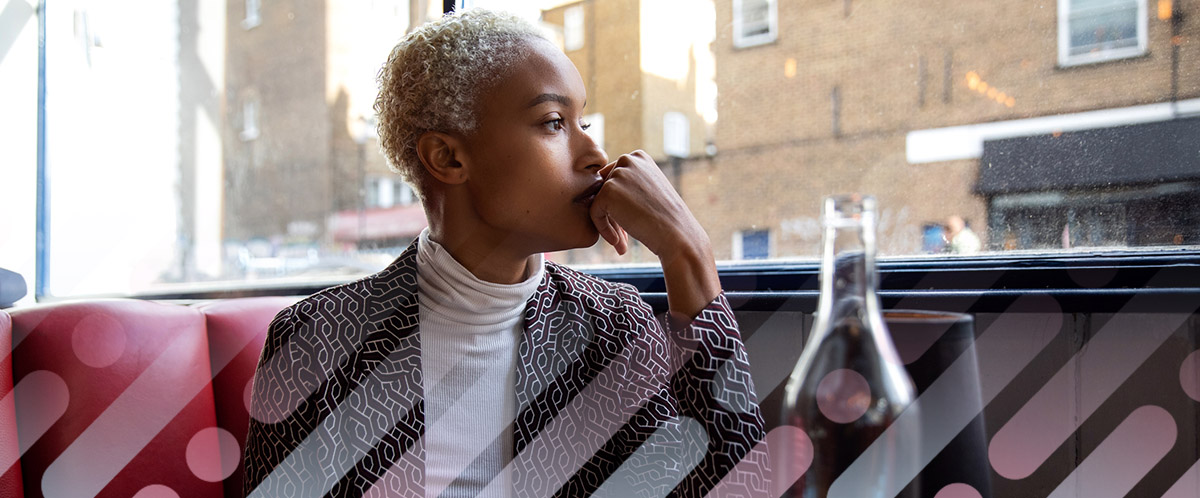Cancer patients long to hear the words “cancer free.” But when it happens, survivors often feel a surprising mix of emotions. So while family and friends expect you to go back to life as usual, you may be left wondering what that now means.
Whatever you’re feeling, remind yourself that it’s okay. It’s normal to feel this way. Recovering from cancer requires healing your mind, too. And so much of that can’t happen until you’re free of cancer. Never apologize for your emotions. Instead, acknowledge them, try to understand what’s causing them and look for ways to move forward.
control what you can
After cancer, it’s common to worry that every ache and pain is something more. Fear of recurrence is normal. You’re also transitioning from an intense period that’s been almost entirely focused on fighting cancer. You’ve been surrounded by an entire team of people devoted to helping you get better. Leaving that can feel really scary, but it doesn’t have to.
Take control of your fears by staying informed. Start by sharing your concerns with your doctor and asking what you can do to take better care of yourself. Then, make a follow-up care plan that’s specific to your situation.
You might find that follow-up appointments heighten your anxiety. Help minimize it by writing down your questions ahead of time. Also, note when your anxiety spikes, such as before a follow-up test, etc. Over time, knowing what’s causing these feelings will make you better equipped to deal them.
you are more than your scars
Breast cancer survivors are often forced to deal with what may feel like significant changes in appearance. Accepting a new body takes time. It’s normal to feel self-conscious or worry how others will see you.
Take time to grieve, but try not to dwell too long on what you’ve lost. Instead, focus on what you’ve gained. Learn to recognize negative thoughts and replace them with all the ways cancer has made you stronger. Your scars have a story. Let them be a symbol of your bravery and a reminder that you made it through it.
This is also the perfect time to do something that makes you feel good. Get a mani-pedi, try a new haircut, update your wardrobe. Treat yourself to whatever reminds you how beautiful you still are. And remember, you are more than your cancer. Always.
coping with all the feelings
Loneliness, sadness, anger, grief. Every survivor feels differently, and often many emotions at once. Everything you’re feeling is normal. It’s normal to feel that others can’t understand what you’ve been through. It’s normal to be angry for all you’ve faced. It’s normal to feel like life isn’t fair. Feel all the things, but then make a plan to move beyond. Here are a few ways to cope with this emotional time:
Join a support group. It can feel really good to be surrounded by others who have been through it and understand what you’re feeling. Learn how and where to find a community here.
Visit an online message board for survivors, such as American Cancer Society Survivors Network. Maybe you’re not ready to speak in face-to-face. Good news: You don’t have to be.
Talk with a therapist. A therapist can help you feel like you have some of that support team back. Together, you can work through your feelings and find ways to better manage them.
Keep busy. Go for a walk, take a cooking class or clean out the garage. Keeping your mind occupied on other activities will give your cancer-related concerns less mental space.
Relax. Plan a vacation, do a puzzle, read a book, take a bath. Do whatever it is that will allow you some serious Zen.
Start a meditation practice. Speaking of Zen, learning to live in the present moment can help you better deal with feelings of anxiety when they arise. Countless meditation apps may make it easier. Start with just five minutes a day.
Control what you can. Sticking to a daily schedule will make you feel more in control of your life. Also, focus on what you can do to stay as healthy as possible, whether that’s eating better or working out more.
Give yourself time and space. You’ve been through a lot. Your feelings aren’t going to dissipate overnight. It will take time and practice, but trust that eventually, everything will get easier.
- https://www.livestrong.org/we-can-help/finishing-treatment/emotions-after-cancer-treatment
- https://www.cancer.org/treatment/survivorship-during-and-after-treatment/be-healthy-after-treatment/life-after-cancer.html
- https://www.mayoclinic.org/diseases-conditions/cancer/in-depth/cancer-survivor/art-20047129
Resensation Articles

How does mastectomy impact the nerves in the breast?
One sometimes overlooked aspect of mastectomy is its impact on nerves. Read what happens to nerves during mastectomy and explore…
Read More
What happens during implant breast reconstruction with Resensation®?
By repairing sensory nerves, Resensation® enables you to potentially regain sensation to your chest. Read how this procedure works during…
Read More
how resensation® helped Leanna feel secure in her family’s future
With Resensation®, Leanna can be there to watch her kids grow up—without losing the feeling of being whole.
Read More
post-surgery sensory retraining: instructions and video guide
Sensory retraining is a series of exercises designed to help you reconnect with your body after breast reconstruction with Resensation®.
Read More